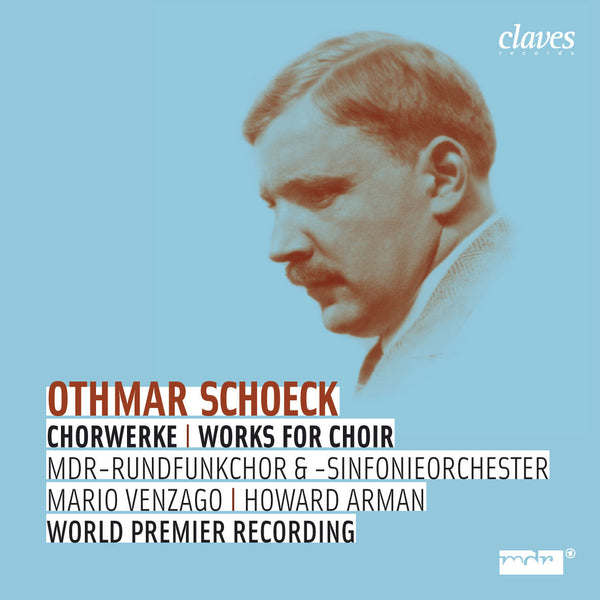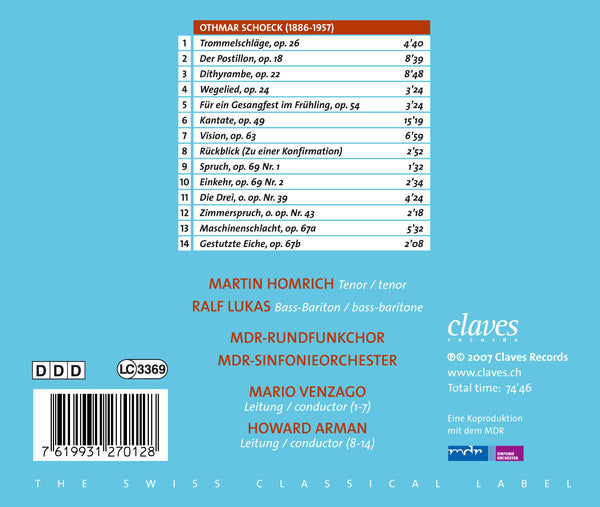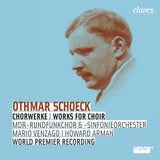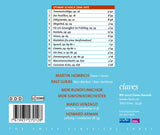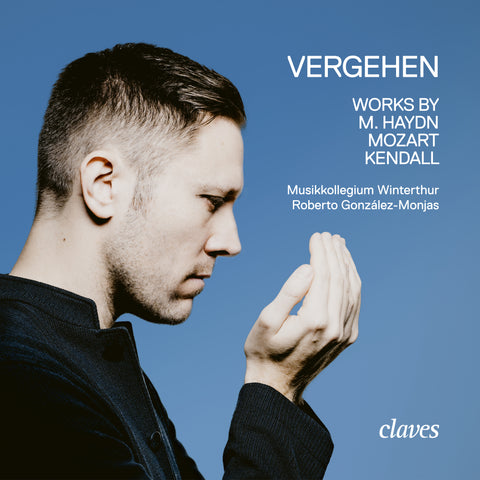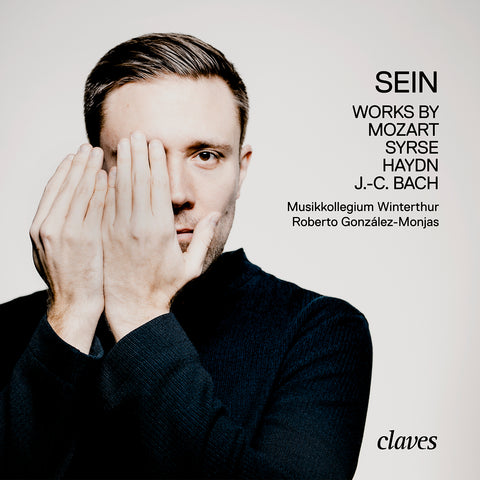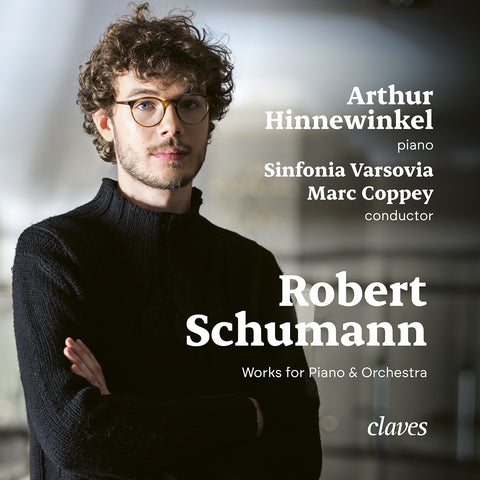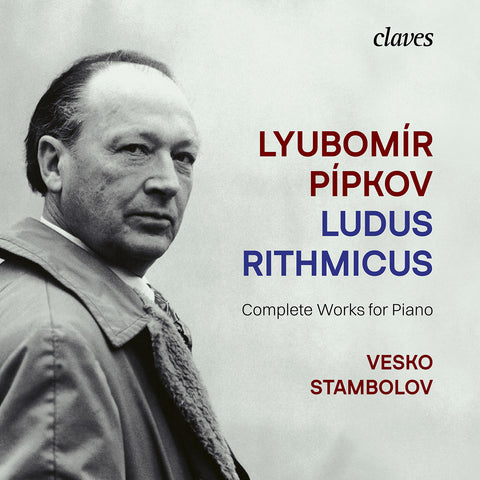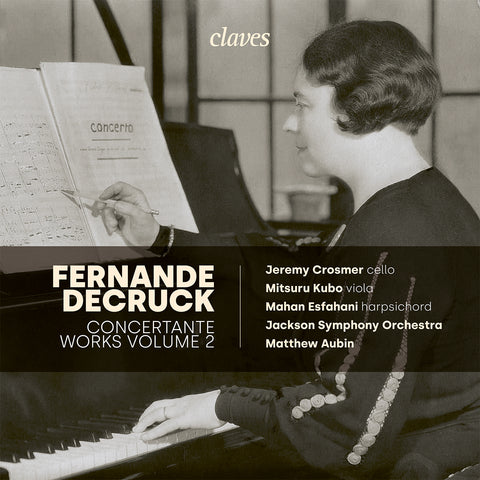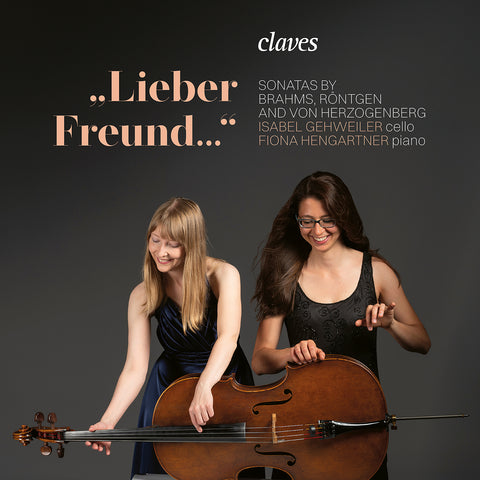(2007) Othmar Schoeck: Chorwerke
CD set: 1
Catalog N°:
CD 2701
Release: 2007
EAN/UPC: 7619931270128
- UPC: 829410378871
This album is now on repressing. Pre-order it at a special price now.
CHF 18.50
This album has not been released yet. Pre-order it from now.
CHF 18.50
CHF 18.50
VAT included for Switzerland & UE
Free shipping
VAT included for Switzerland & UE
Free shipping
This album is now on repressing. Pre-order it at a special price now.
CHF 18.50
This album has not been released yet.
Pre-order it at a special price now.
CHF 18.50
CHF 18.50
OTHMAR SCHOECK: CHORWERKE
*** Clé du Mois ResMusica ***
Othmar Schoeck composed a large part of his choral music between the years 1909 and 1915; a time during which he earned his living principally as a choral conductor. Schoeck never particularly liked this occupation; his manner often was considered unconventional and at times even disdainful by his decidedly traditional and conservative choirs. In spite of this he was very successful as conductor; approaching his work with great energy and leading his choirs to perform demanding programs at a high level. And at times he took his choirs to the limits of their abilities; particularly with his own compositions; occasionally in retaliation for the artistic ignorance and insularity of the Swiss choral system.
At home like with Schubert
After having composed some half-dozen principally a cappella choral works Schoeck wrote his first major choral composition in September 1909: Der Postillon [the postilion] to a poem by Nikolaus Lenau. The work is still completely in the tradition of late-romantic choral music; the strings gently paint the mood of a May night; the horns sound the song; at times boldly; at times melancholically; of the departed postilion. Schoeck’s friend Hermann Hesse; who heard the premiere of the work in Zurich in 1911; wrote enthusiastically about it in his memoirs: “I felt at home with this music; like with Schubert.”
Schoeck struck a completely different tone in his short but monumental Dithyrambe. He set Goethe’s three lines (from a letter to Auguste zu Stolberg in July 1777) to music for double choir and large orchestra with organ in 1911; the lugubrious; romantic swan song of the postilion was followed a year later by a roaring burst of personal expression driven by an enormous elemental force. The ten minutes of music are most demanding on the choir. One only has to listen to the drawn-out final chord; the exhausted singers must sing a crescendo beginning fff and at times without orchestral accompaniment. But it was exactly with this excess and intransigence that Schoeck captured the spirit of Goethe’s three lines.
A deeply felt love for freedom
Composed in 1949; Vision is a wonderful gem for male choir; instruments and string orchestra that Schoeck wrote for the Schwyz Singing Society and the Lachen Male Choir (Lachen; Lake Zurich). Once again written to a poem by Gottfried Keller; this time; however; without the patriotic pathos but with an honest; deeply felt love for freedom. Schoeck transcended late-romantic choral music and transformed it into the personal language of his late style. A reserved sense of serenity pervades this last; major piece of choral music.
Maschinenschlacht [battle of the machines]; a work for a cappella male choir written for the Zurich Harmonie Singing Society in 1953; is very different. The aging Schoeck stood up once again without compromise against a contemporary society that he considered to be without soul. And as was the case years earlier with Trommelschläge [Beat! Beat! Drums!] the singers revolted. But in this case because of the text by Hermann Hesse; who polemicized against dumb; treacherous machines and money-hungry industrialists. In the end the poem was altered in two places with Hesse’s consent: The angry crowd no longer mill the “industrialist” but merely the “quadrant” to death; and the creators of the machines no longer “croak” but merely “expire” nicely. The anachronistic and relentless polemic against contemporary society was published together with another setting of a Hesse poem; Gestutzte Eiche [truncated oak]; a work commissioned by the male choir in Thun and completed in 1953.
Beat A. Föllmi
(Translation: Mark Manion)







